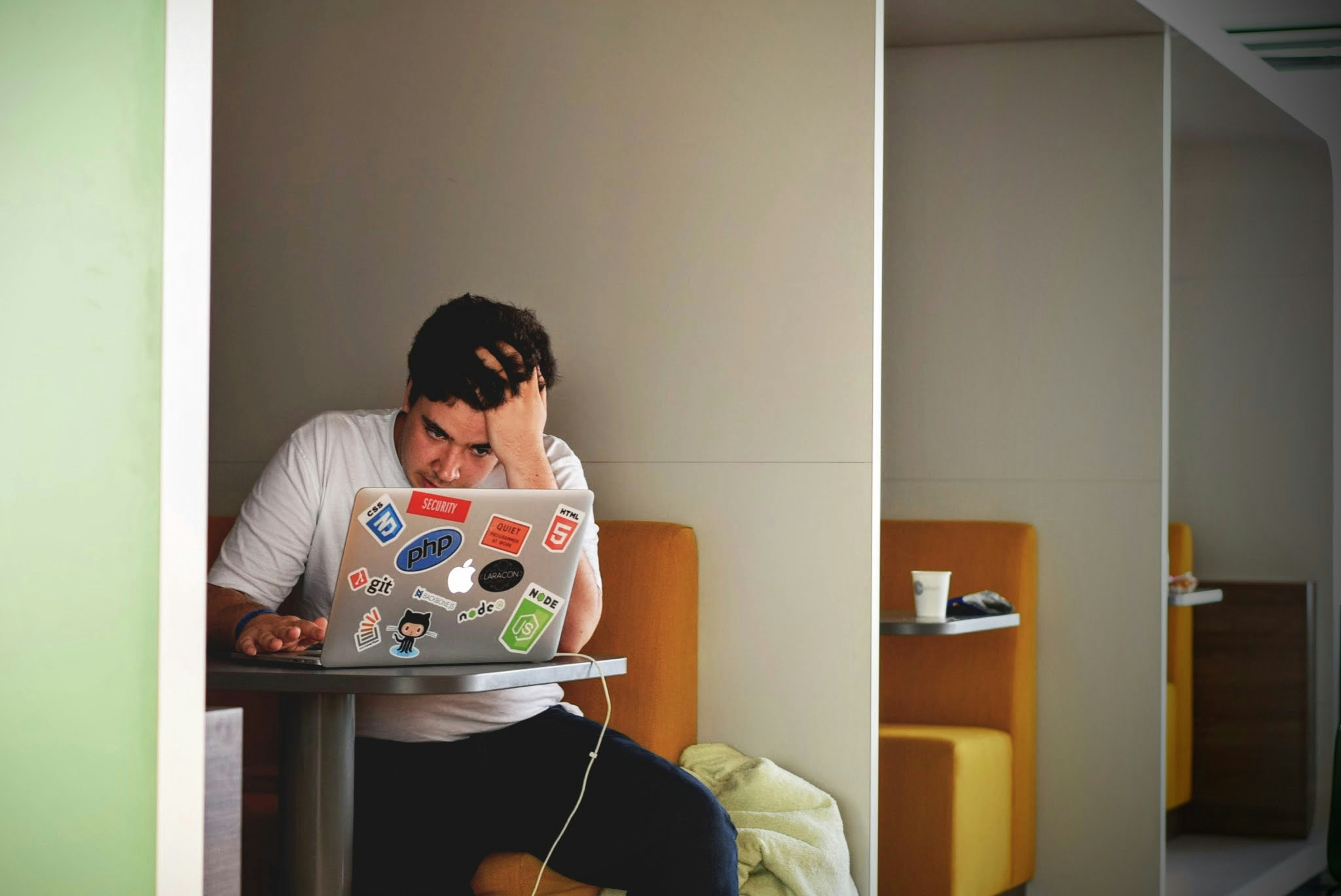Listen to this article
Productivity
How can I improve my concentration?


Productivity
How can I improve my concentration?


Productivity
How can I improve my concentration?



Summary
When you can’t concentrate, the more you try to focus, often it feels like the harder it gets. This article outlines the key factors that may be impacting your ability to focus, and some tips for how to tackle these in order to improve your concentration.
Summary
When you can’t concentrate, the more you try to focus, often it feels like the harder it gets. This article outlines the key factors that may be impacting your ability to focus, and some tips for how to tackle these in order to improve your concentration.
Read this article
2m
Tiredness
Adults generally need between 7 and 9 hours of sleep each night, so if you aren’t getting enough, you’ll likely find it harder to concentrate. Read our article How can I sleep better? for a more detailed look at how to improve your sleep, or follow these quick steps:
make sleep a priority, commit to getting the sleep you need and plan around prioritising improvements to your sleep schedule
have a good pre-sleep routine, try not to eat close to sleeping and have some screen-free time leading up to sleep
ensure your sleeping environment is optimal if possible, i.e. dark, quiet and cool
if you drink caffeine, try to limit your caffeine intake later in the day to limit any disruption to sleep
make sure your phone is on silent, in sleep mode, or even turned off to limit disruptions when trying to sleep
Distracting thoughts
Have a notepad and pen or a note-taking app on your phone to hand. Any time something pops into your mind that you think you need to do or remember, write it down. That way you can feel assured that you won’t forget anything and stop having the distraction of feeling like you have to keep lots of thoughts in your mind.
Environmental factors
If your current environment is too hot, cold, cluttered, noisy, or quiet, your capacity to focus can suffer. There are many ways to change your environment - there are lots of different types of places to work (at home, in a cafe, the library etc) or you can use headphones and apps like A Soft Murmur to control background noise.
Think about your workstation set up too - working in an uncomfortable position will be a significant distraction, while some may find that switching between different locations (cafe, library and home for example) helps them to mix things up and therefore work for longer.
Self-care
Sugar and caffeine can adversely affect your concentration (and your sleep) so think about what you are eating and drinking. Likewise, exercising, whether going to the gym or for a 30-minute walk, will help you to focus better.
It is also very important to ensure you are not burning yourself out so remember to take breaks and spend time away from studying.
Stress and anxiety
This can be more difficult to resolve as it may be linked to bigger concerns about things going on in your life. Acknowledging that this is causing you difficulties with concentration is a useful starting point, and understanding why something happens helps us feel more in control.
It may be beneficial to seek additional support, this may be from friends and family or more specialist support services within your school, college or university.
Read this article
2m
Tiredness
Adults generally need between 7 and 9 hours of sleep each night, so if you aren’t getting enough, you’ll likely find it harder to concentrate. Read our article How can I sleep better? for a more detailed look at how to improve your sleep, or follow these quick steps:
make sleep a priority, commit to getting the sleep you need and plan around prioritising improvements to your sleep schedule
have a good pre-sleep routine, try not to eat close to sleeping and have some screen-free time leading up to sleep
ensure your sleeping environment is optimal if possible, i.e. dark, quiet and cool
if you drink caffeine, try to limit your caffeine intake later in the day to limit any disruption to sleep
make sure your phone is on silent, in sleep mode, or even turned off to limit disruptions when trying to sleep
Distracting thoughts
Have a notepad and pen or a note-taking app on your phone to hand. Any time something pops into your mind that you think you need to do or remember, write it down. That way you can feel assured that you won’t forget anything and stop having the distraction of feeling like you have to keep lots of thoughts in your mind.
Environmental factors
If your current environment is too hot, cold, cluttered, noisy, or quiet, your capacity to focus can suffer. There are many ways to change your environment - there are lots of different types of places to work (at home, in a cafe, the library etc) or you can use headphones and apps like A Soft Murmur to control background noise.
Think about your workstation set up too - working in an uncomfortable position will be a significant distraction, while some may find that switching between different locations (cafe, library and home for example) helps them to mix things up and therefore work for longer.
Self-care
Sugar and caffeine can adversely affect your concentration (and your sleep) so think about what you are eating and drinking. Likewise, exercising, whether going to the gym or for a 30-minute walk, will help you to focus better.
It is also very important to ensure you are not burning yourself out so remember to take breaks and spend time away from studying.
Stress and anxiety
This can be more difficult to resolve as it may be linked to bigger concerns about things going on in your life. Acknowledging that this is causing you difficulties with concentration is a useful starting point, and understanding why something happens helps us feel more in control.
It may be beneficial to seek additional support, this may be from friends and family or more specialist support services within your school, college or university.

Written by Tim Jones

Written by Tim Jones
0:00/1:34
Summary
When you can’t concentrate, the more you try to focus, often it feels like the harder it gets. This article outlines the key factors that may be impacting your ability to focus, and some tips for how to tackle these in order to improve your concentration.
Read this article
When you can’t concentrate, the more you try to focus, often it feels like the harder it gets. This article outlines the key factors that may be impacting your ability to focus, and some tips for how to tackle these in order to improve your concentration.
Tiredness
Adults generally need between 7 and 9 hours of sleep each night, so if you aren’t getting enough, you’ll likely find it harder to concentrate. Read our article How can I sleep better? for a more detailed look at how to improve your sleep, or follow these quick steps:
make sleep a priority, commit to getting the sleep you need and plan around prioritising improvements to your sleep schedule
have a good pre-sleep routine, try not to eat close to sleeping and have some screen-free time leading up to sleep
ensure your sleeping environment is optimal if possible, i.e. dark, quiet and cool
if you drink caffeine, try to limit your caffeine intake later in the day to limit any disruption to sleep
make sure your phone is on silent, in sleep mode, or even turned off to limit disruptions when trying to sleep
Distracting thoughts
Have a notepad and pen or a note-taking app on your phone to hand. Any time something pops into your mind that you think you need to do or remember, write it down. That way you can feel assured that you won’t forget anything and stop having the distraction of feeling like you have to keep lots of thoughts in your mind.
Environmental factors
If your current environment is too hot, cold, cluttered, noisy, or quiet, your capacity to focus can suffer. There are many ways to change your environment - there are lots of different types of places to work (at home, in a cafe, the library etc) or you can use headphones and apps like A Soft Murmur to control background noise.
Think about your workstation set up too - working in an uncomfortable position will be a significant distraction, while some may find that switching between different locations (cafe, library and home for example) helps them to mix things up and therefore work for longer.
Self-care
Sugar and caffeine can adversely affect your concentration (and your sleep) so think about what you are eating and drinking. Likewise, exercising, whether going to the gym or for a 30-minute walk, will help you to focus better.
It is also very important to ensure you are not burning yourself out so remember to take breaks and spend time away from studying.
Stress and anxiety
This can be more difficult to resolve as it may be linked to bigger concerns about things going on in your life. Acknowledging that this is causing you difficulties with concentration is a useful starting point, and understanding why something happens helps us feel more in control.
It may be beneficial to seek additional support, this may be from friends and family or more specialist support services within your school, college or university.

Written by Tim Jones
Prior to co-founding Booost Education, Tim previously worked with neurodivergent and disabled students at various universities and trained as an assistive technology consultant with AbilityNet.

Written by Tim Jones
Prior to co-founding Booost Education, Tim previously worked with neurodivergent and disabled students at various universities and trained as an assistive technology consultant with AbilityNet.

